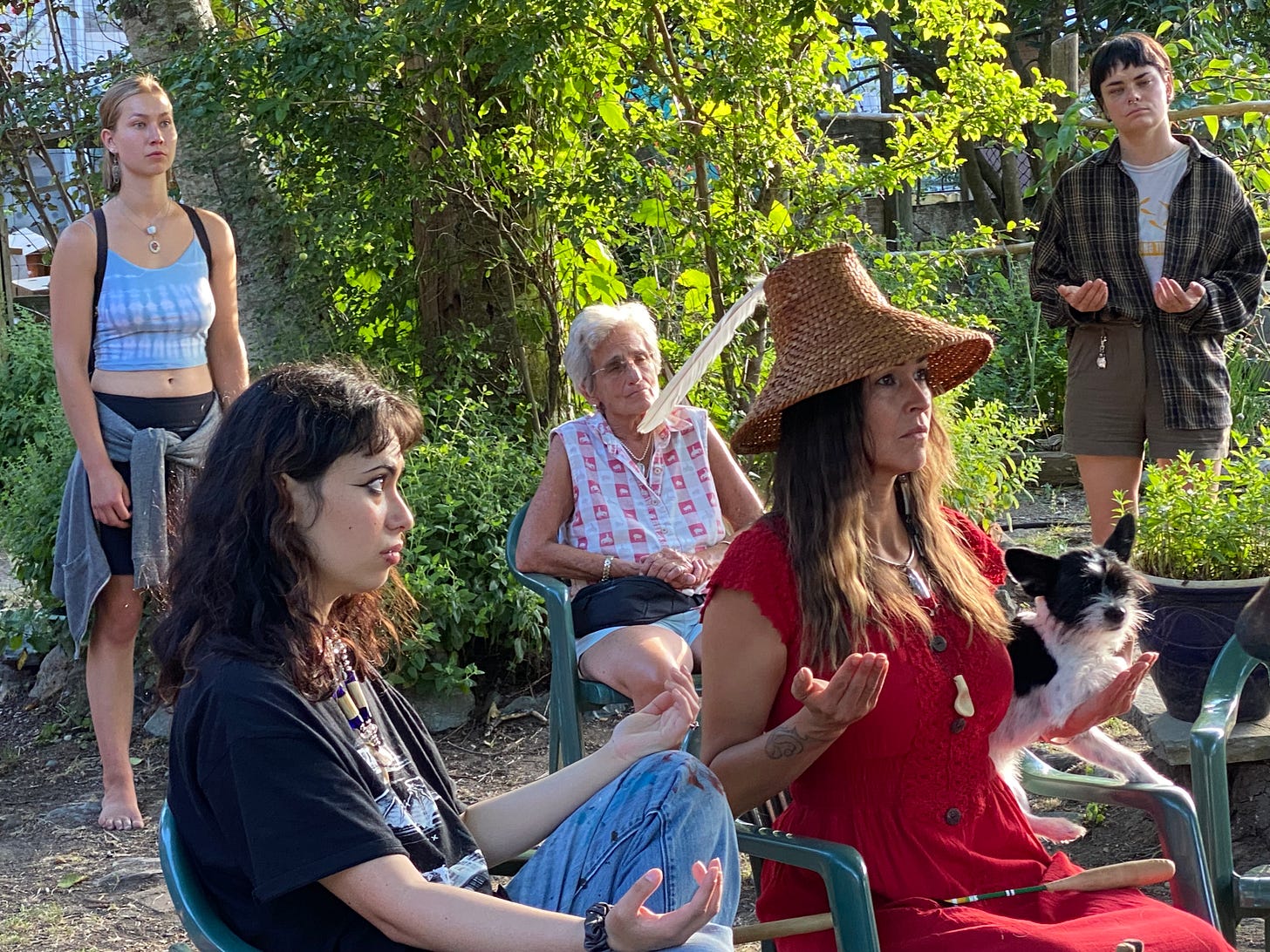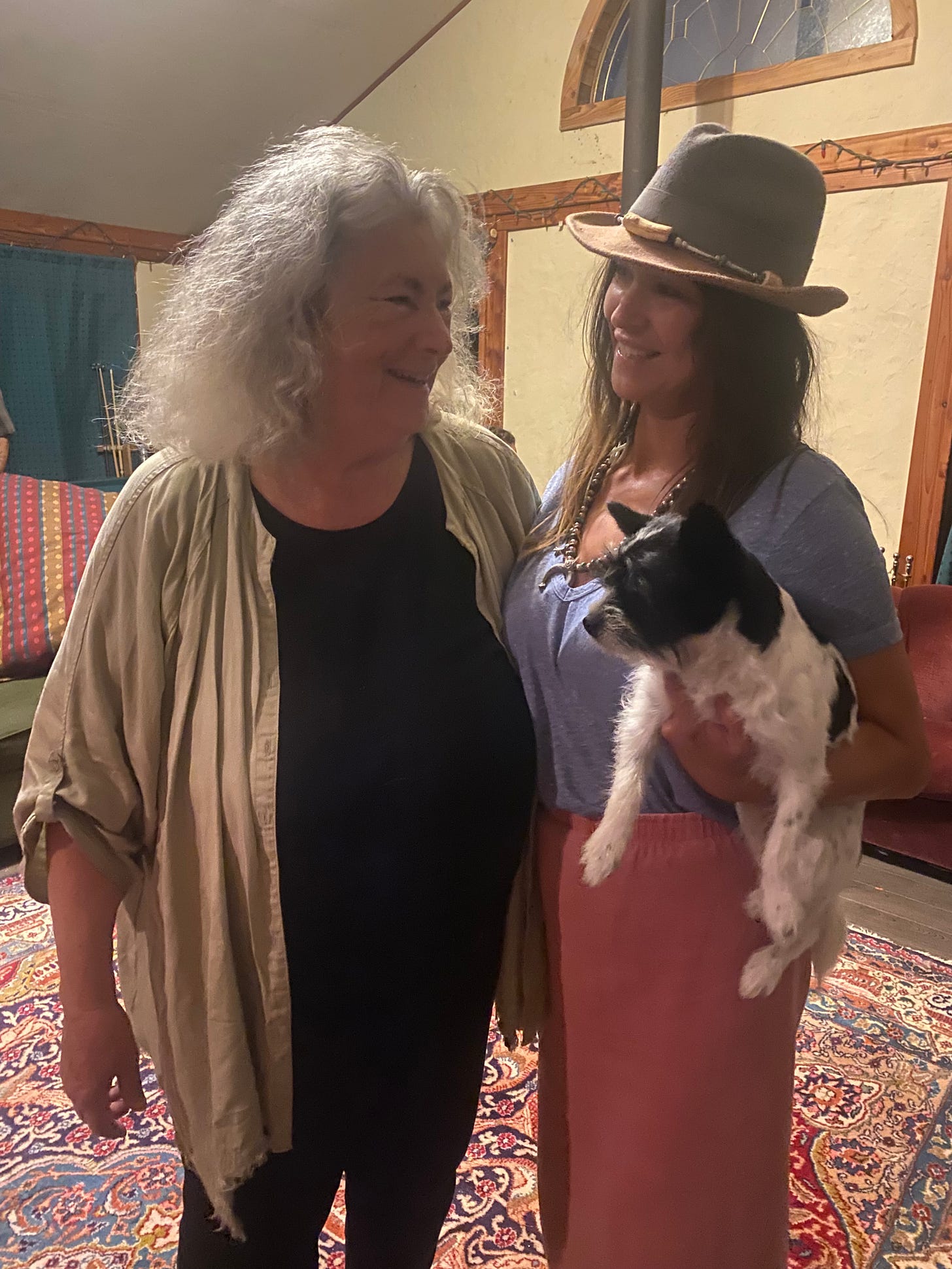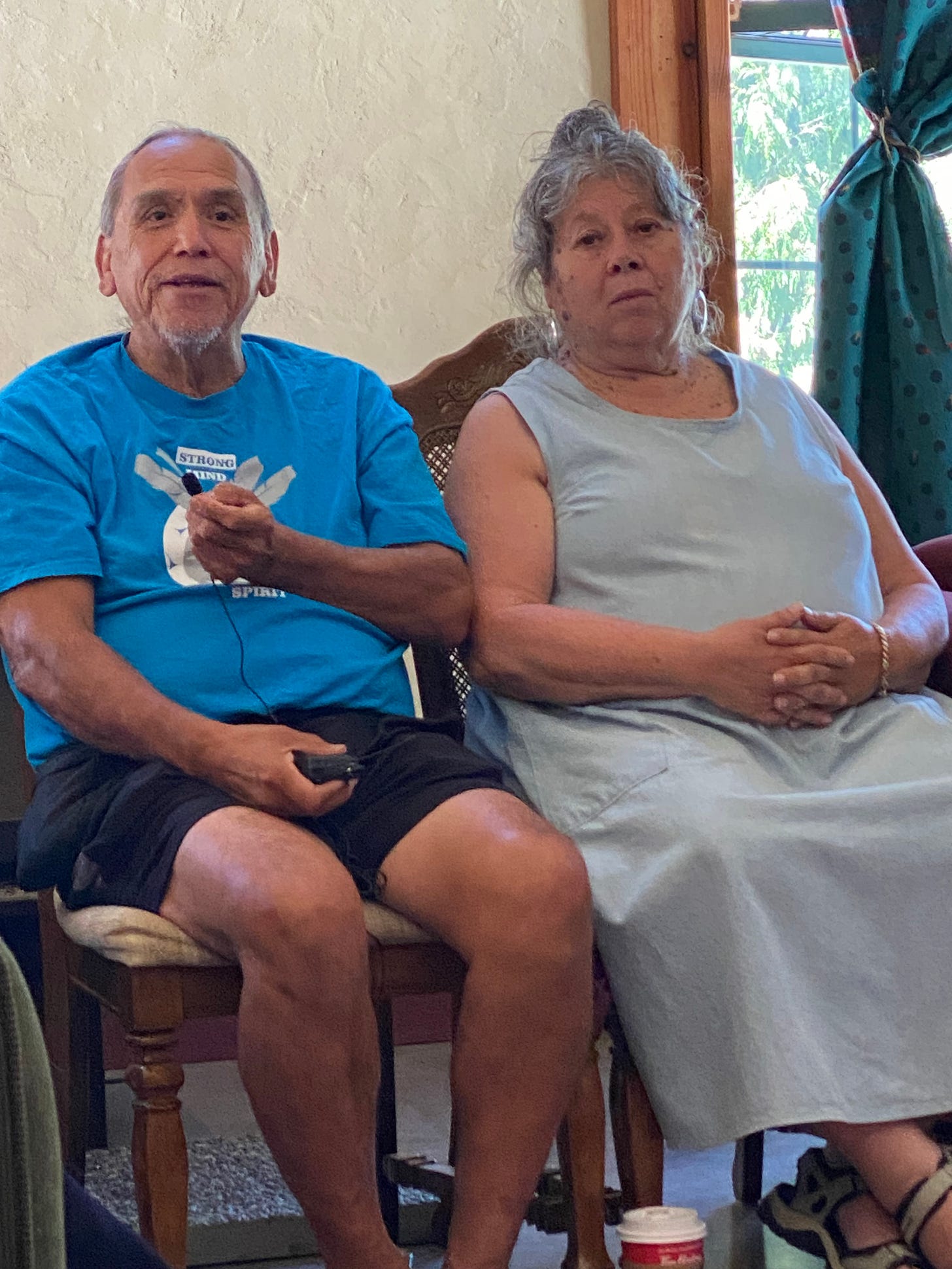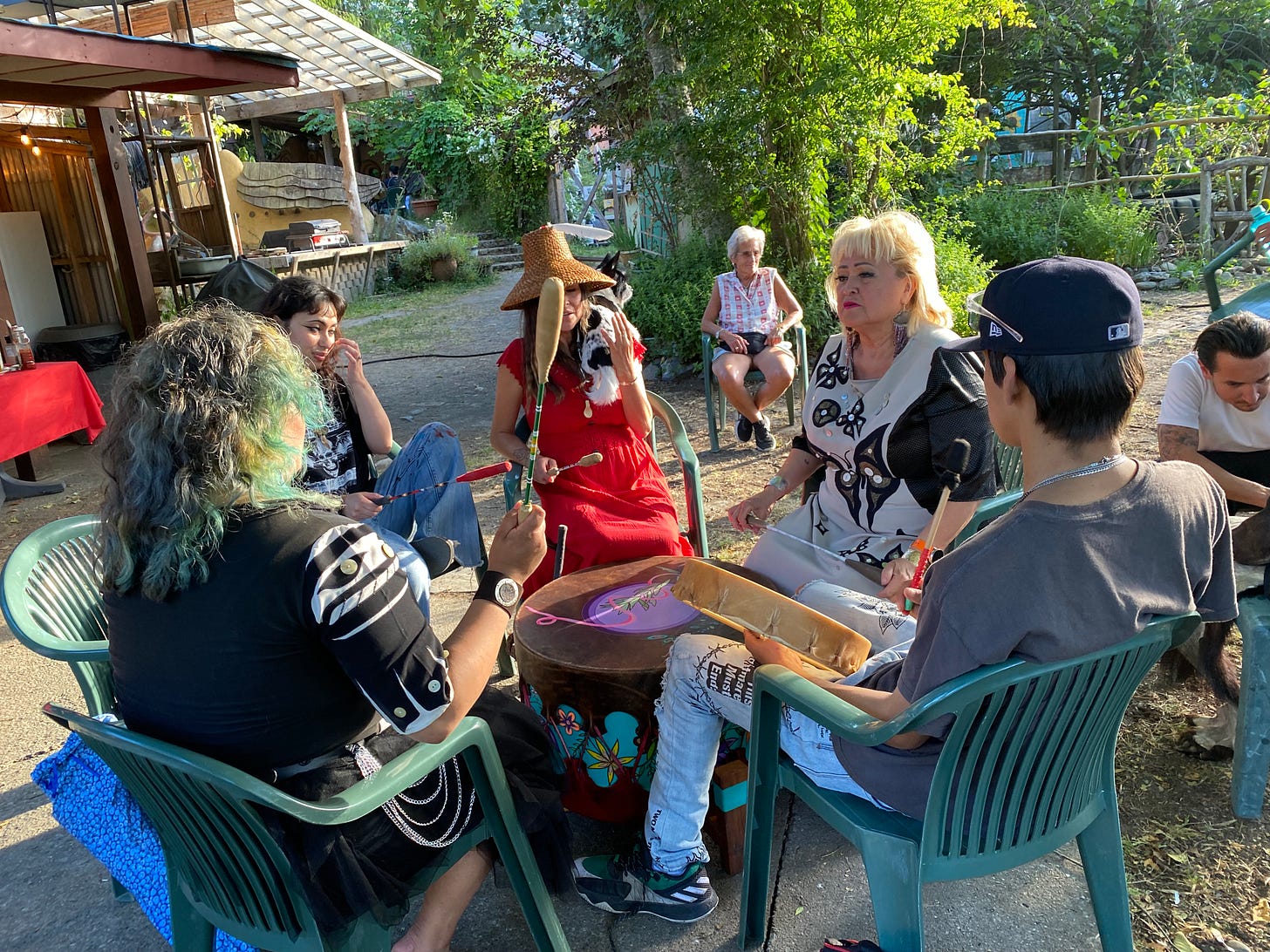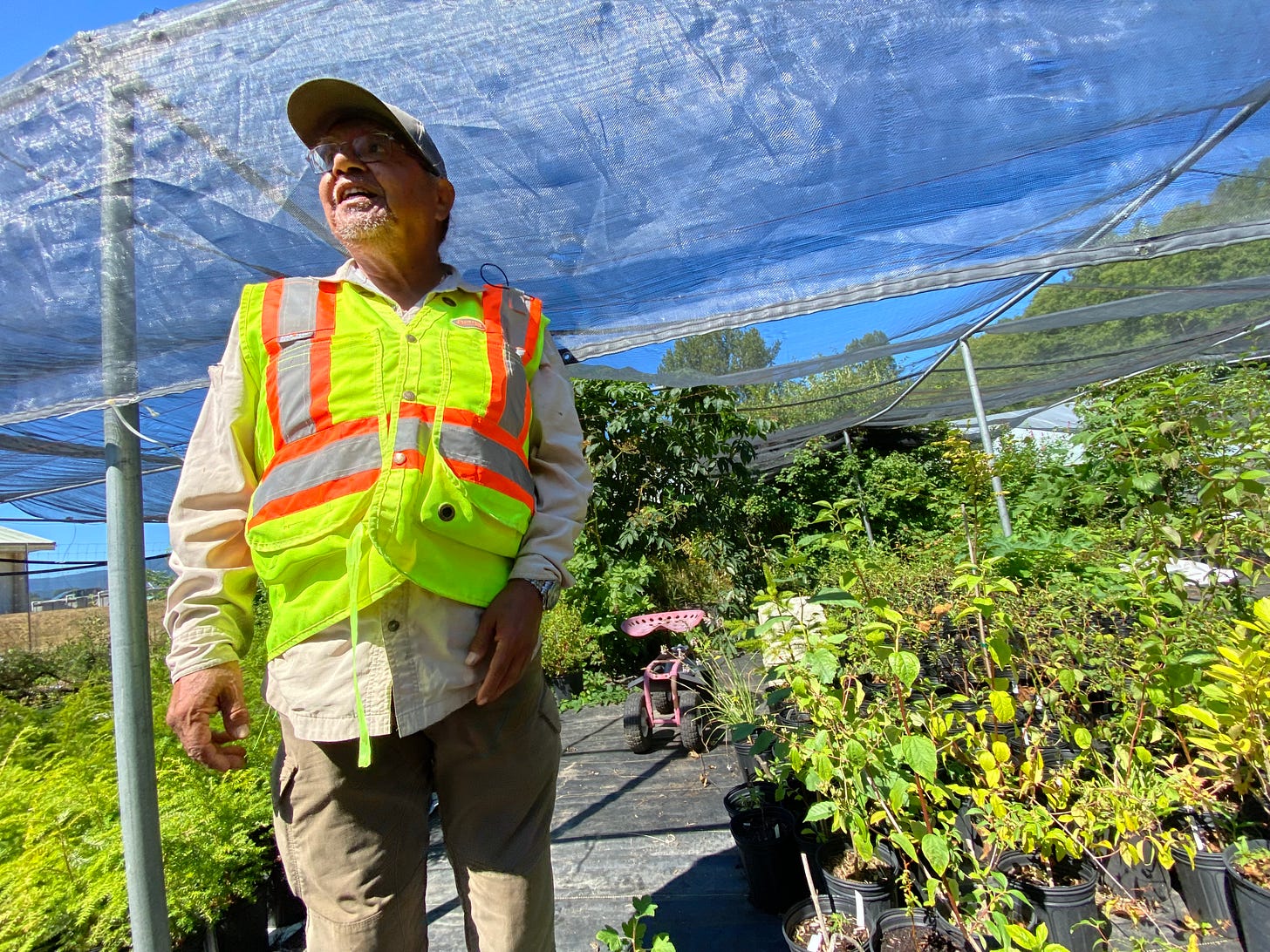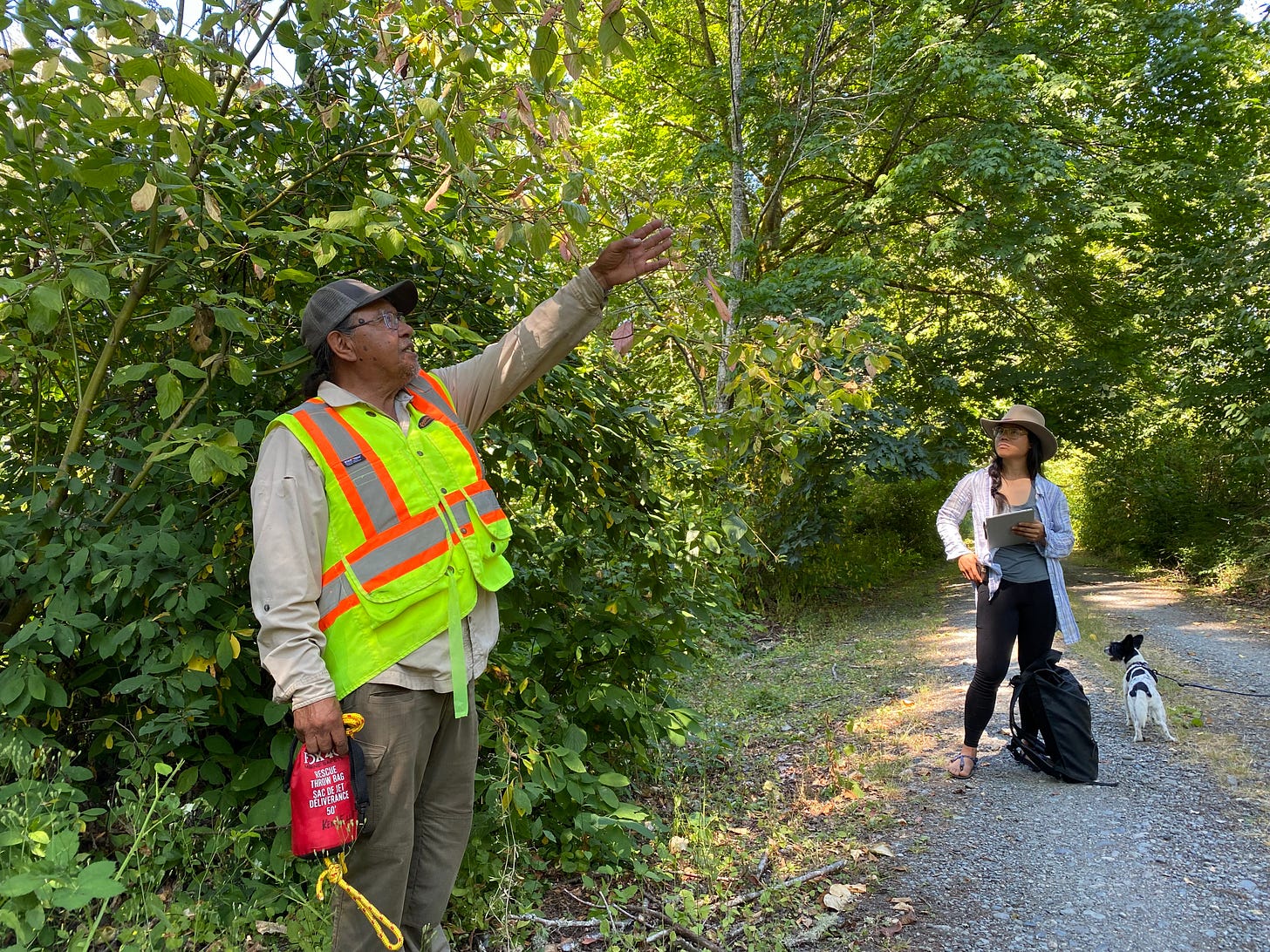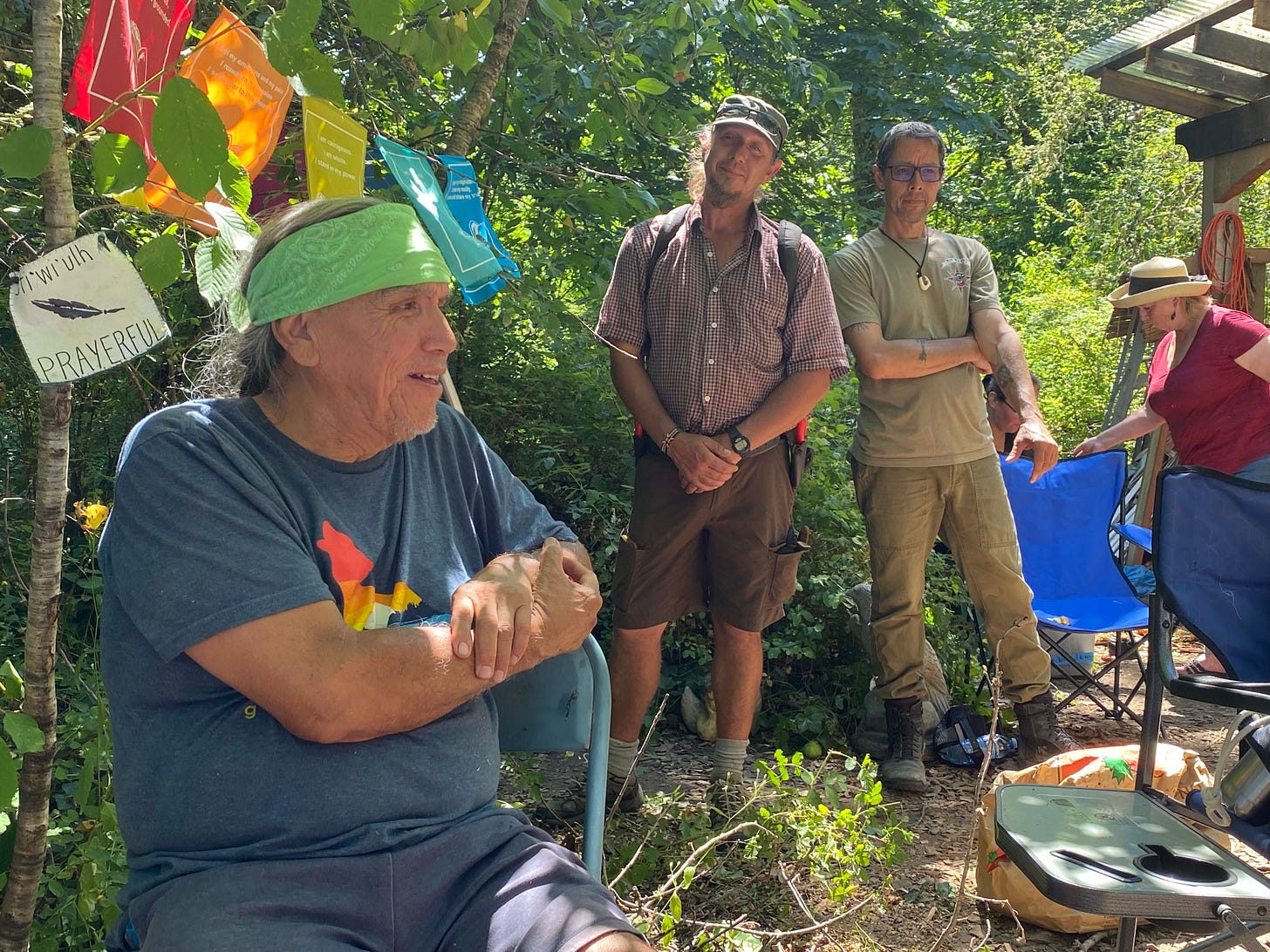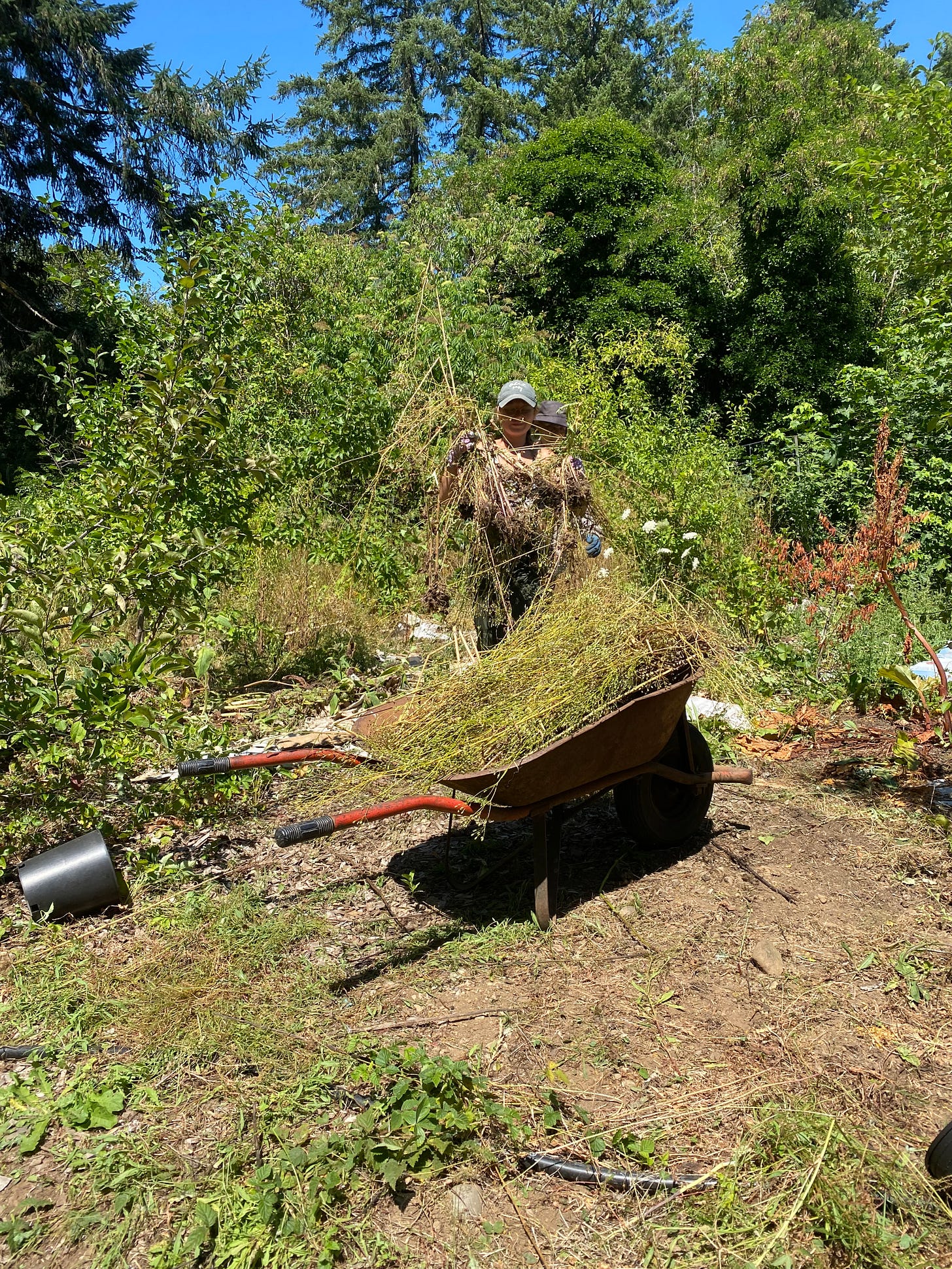What is the word that might mean ‘transforming our consciousness, forged by capitalism and all the ‘isms of the post-modern world, toward an awareness of the interconnectedness of all things and the sacredness of nature?” We might say ‘decolonizing,’ but the deep mind doesn’t really understand negation, and what stays in our awareness is “colonization”. We could say ‘reindiginization’, but aside from being very hard to say, most of us have not been indigenous for centuries or millennia and the ‘re’ seems presumptuous. I recently taught a permaculture course at O.U.R. Ecovillage in Shawnigan Lake, British Columbia, and there we tried out ‘reVILLAGEing’. That’s close, but not quite it. Nonetheless, I learned some deep lessons there this summer, which I want to share.
In an earlier post, I shared pictures of some of their impressive natural buildings, which was their primary focus when I first visited some thirteen years ago. You can also hear my interview with Brandy Gallagher, founder of the intentional community.
But in recent years, their focus has gradually shifted more and more toward nurturing and deepening relationships with the First Nations communities that surround them. So, this year I shared teaching with Hiinahcit, Petrina Devali, a teacher, child welfare advocate and herbalist from the Hesquiaht Band of the Nuu Chah Nulth Nation.
(Me and Hiinahcit and her little dog, too—Banjo!)
It’s been a great privilege to get to know her, to work with her and to deepen our relationship. You can hear my interview with her on my podcast, where we talk about her work in herbalism, what decolonizing means, and how to build meaningful, reciprocal relationships of allyship.
We were welcomed to the Ecovillage by Qwiyahwlt-hw, an elder of the Cowichan Nation whose land we were on, and his partner Pamela. Indigenous cultures have strict protocols, and Hiinahcit asked his permission, gifting him and Pamela with blankets, to bring her women’s drumming group to drum with us. From a social permaculture perspective, protocols are powerful tools for regulating relationships and forestalling any potential conflicts between neighboring groups. They are rooted in respect, and consent. You don’t enter someone’s territory without their consent and start doing your thing, any more than you’d walk into someone’s house uninvited and start playing their piano. Living on stolen land as we do, with all boundaries broken, it takes time to readjust and accept that real decolonization might mean we don’t just get to do what we want, where we want, as if all the resources of the world were ours to exploit.
The drumming group came, drummed, sang, gave us all a brushdown with eagle feathers. I felt myself release a load of frustration and grief I was carrying about the political situation back in the U.S. They gave us gifts, and the Ecovillage gifted them in return.
The traditional cultures of Vancouver island are potlatch nations, gifting cultures. In a gifting culture, you gain status by what you give away, not by what you accumulate and hoard. I don’t claim to understand all the nuances, and I sometimes find it uncomfortable, not knowing what’s appropriate to give and when, and most often receiving far more than I have any reason to expect. One of the reasons diversity is valuable is that it gives you a different perspective on your world. Looking at our rapacious, capitalist culture through the lens of a gifting culture makes me realize how strange our value system is. Musk, Bezos, Trump and their ilk can only accumulate power because we see their accumulation of wealth as somehow admirable. While we might admire those billionaires who practice philanthropy, it’s primarily the accrual of wealth that confers value in the dominant culture, even when that wealth is unearned. If Donald Trump had been a poor man, no one would have taken him seriously for a moment. If we lived in a gifting culture, his greed and insatiable need to gain more wealth and power would be seen for what it truly is—an addiction and a disease.
On our tour day, we visited the salmon hatchery and native plant nursery of Ken Elliot, a Cowichan elder who has devoted his life to restoring the fisheries and the rivers. Ken is a great storyteller, and he told a tale of a harrowing accident that nearly killed him, but instead opened him up to listen to the salmon and the voices of nature. The salmon told him that their children were dying, and he knew then that he had to restore their habitat and protect the streams and rivers where they spawn. So he began growing and planting the native plants that thrive in the riparian zones and are needed to provide shade, bank stability, food and shelter. He led us on a nature walk to the river, where half the class jumped in, fully clothed.
We often think of decolonizing as removing false ideas and letting go of a sense of entitlement. But what if it’s actually about opening up, understanding that nature is always speaking to us and if we stop for a moment and listen, we can hear what she is saying?
The next day, we went to Qwiyahwlt-hw’s land on the reserve. Over the last several years, our students have designed food forests for him and other elders, then mustered volunteers to help plant and tend them. It’s a pleasure to return each year and see what has grown, mourn for what failed to thrive, and put some energy into tending the land. Qwiyahwlt-hw has a sweat lodge overlooking the river, and this time he was asking for help tending an overgrown orchard that lay behind a choked path of ivy and blackberries.
When he was young, the orchard was fruitful, and he remembers climbing the trees and earting the apples. In those days, every village on the reserve had an orchard. But in the ‘60s, the Canadian Government conducted a sweep of the villages, forcibly taking the children away to residential schools. With the children gone, the people lost heart and stopped tending the trees. Now they are totally overgrown with ivy, so that they can hardly be seen. And yet there are still pears growing on the tops of the trees, and it’s possible that they could be reclaimed.
Grief and trauma are written in the land, just as they are held in the body and in the patterns of our relationships and reactions. Clearing a path to that old orchard, beginning to remove the ivy and to once again tend the trees, felt like an act of healing for more than the fruit trees. Designing, planting and tending new food forests and a medicine garden for the Ecovillage feels like more than hope: it’s a commitment to the future.
I still don’t have the perfect word for it—this shift in consciousness. Responsibility, respect, consent, reciprocity, giving back, listening, caring for the land and the people, forging friendships and building relationships—these are some of the elements. Kimimila Locke, a former student from the Standing Rock reserve, taught us that the Lakota word for ‘decolonize’ is “Kilákȟota” which literally means “becoming human again.” Whatever word we use, the shift we are trying to make is from seeing the world as a collection of objects to be acquired, and instead understand it as a web of relationships to be nurtured. When we can do that, we will become more deeply rooted in connection to nature and more capable of creating more just and nurturing community. I am so grateful for the opportunities I’ve been gifted to learn from all those who are struggling to make that shift.
(I keep my posts free for all to read—and if you subscribe, at any level, you’ll get them delivered to your inbox. If you can afford to upgrade to a paid subscription, you will help support my writing and organizing and earn my undying gratitude! And you’ll get additional benefits—like a monthly live conversation and more.)
This post has been syndicated from Starhawk’s Substack, where it was published under this address.

